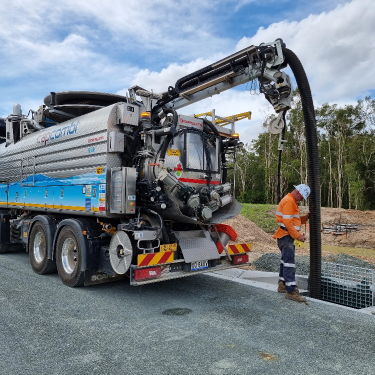Common Industrial Wastewater in Australia
Australia is a major producer of industrial wastewater, with different industries producing various types of liquid waste. This can have a negative impact on the environment if not properly managed. In this article, Elite Liquid Waste shares the most common types of industrial wastewater our clients deal with and why they need to be managed properly.
8 Common Types of Liquid Waste Sorted by Industry
Industrial Laundries

This wastewater is produced during the washing and cleaning processes in the laundry industry. It contains a mixture of dirt, grease, detergents and other chemicals which must be disposed of with care to avoid polluting nearby water sources.
Metal Finishers

This wastewater is produced in industries such as metal finishing and electroplating, where metals are treated with chemicals such as acids or bases. The wastewater contains a mixture of heavy metals and other chemicals which must be disposed of properly to avoid pollution.
Power Plants

Power plants use large amounts of water to generate electricity, and this wastewater contains a mixture of chemicals and minerals that can be damaging to the environment if not disposed of correctly.
Food Processing

Food processing industries produce wastewater containing a mixture of fats, oils, grease, and other chemicals. The waste produced during beverage manufacturing, dairy production, and fruit and vegetable canning also contains a variety of chemicals.
Steel / Iron Production

This wastewater contains a mixture of heavy metals and other chemicals which can be damaging to the environment if not disposed of properly. Some examples of liquid waste produced during the steel production process are liquid iron, slag, and wastewater containing sulfuric acid. They are all highly corrosive and must be handled with care.
Chemical Manufacturing

Chemical manufacturing industries produce wastewater containing a variety of hazardous chemicals such as solvents, acids and bases. This wastewater can be extremely hazardous if not disposed of correctly and must be managed carefully to avoid environmental pollution.
Mining

Mining activities can produce large amounts of wastewater containing a variety of hazardous substances such as metals and chemicals. This is also one of the most difficult types of wastewater to manage as the contaminants are often deep underground and can be hard to remove.
Oil and gas fracking

Fracking is the process of drilling and injecting water, sand and chemicals into the ground to break up rocks to extract oil and gas. In Australia, this type of business activity is heavily regulated and the wastewater produced must be treated carefully to avoid contamination.
Regulations on Industrial Wastewater
The Australian government has strict regulations on industrial wastewater, including specific requirements for different types of liquid waste. Businesses must ensure they are compliant with all regulations when disposing of their wastewater. This includes carrying out regular testing and monitoring to ensure the water is being managed properly.
The Importance of Appropriate Disposal of Industrial Wastewater
Industrial wastewater can have a significant impact on the environment if not managed correctly. It is important for businesses to be aware of the different types of industrial wastewater and their appropriate disposal methods, as well as the regulations in place to ensure compliance. Hiring a liquid waste management company such as Elite Liquid Waste can save you time and money, so you can be sure your business is compliant with all regulations.
We got the specialties & equipment! Book a FREE onsite quote for your business waste management today!

